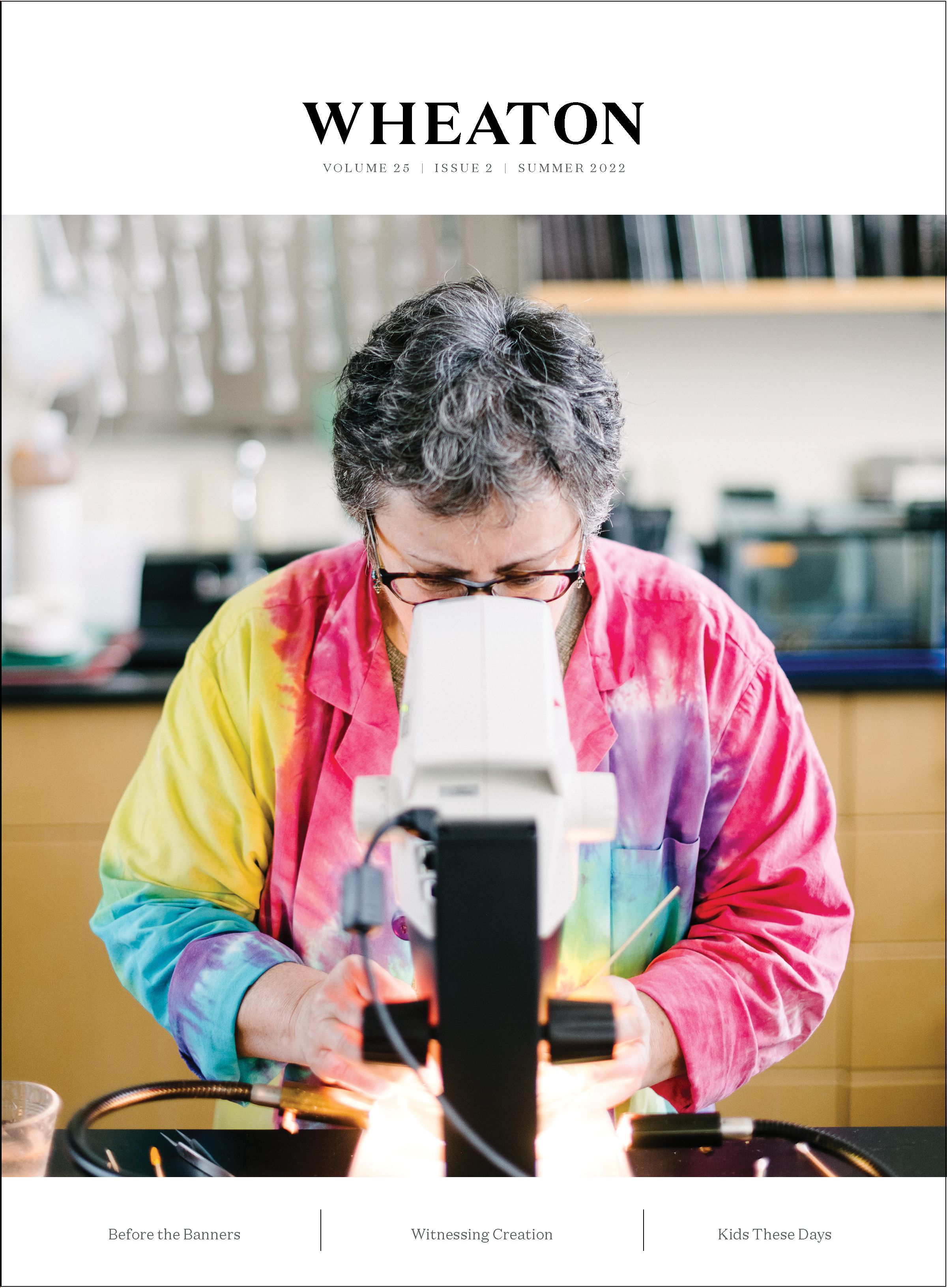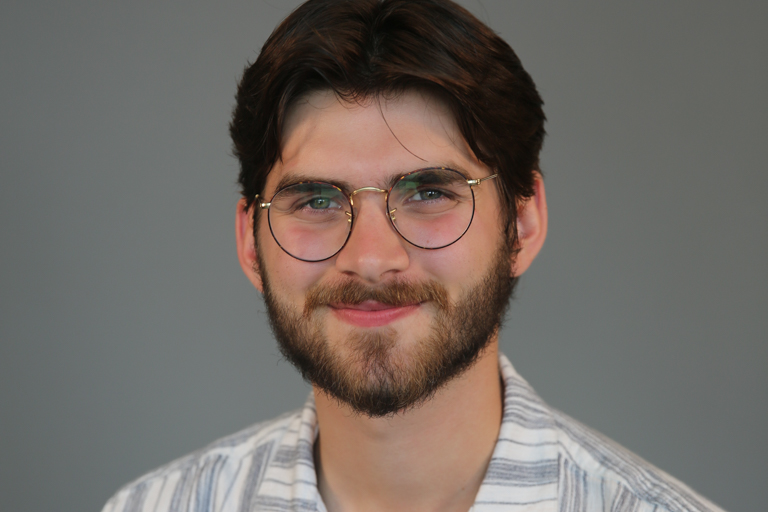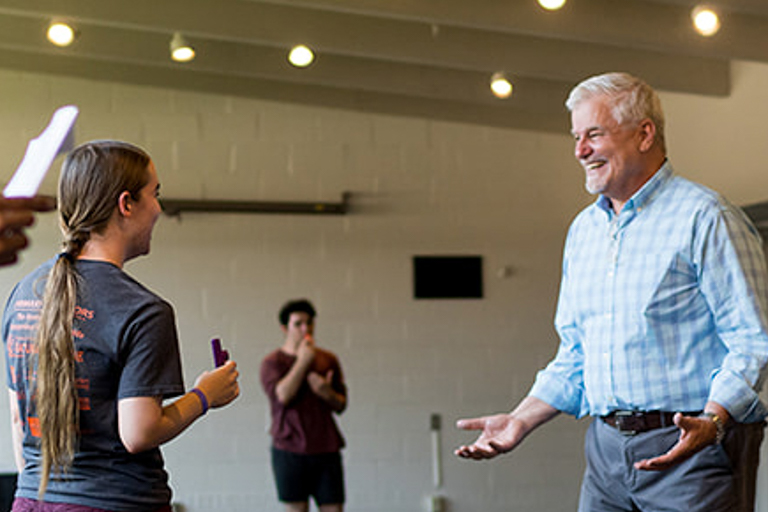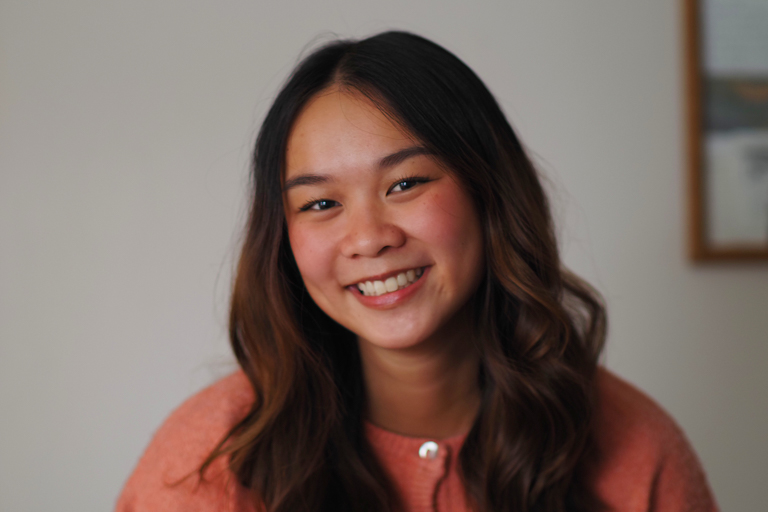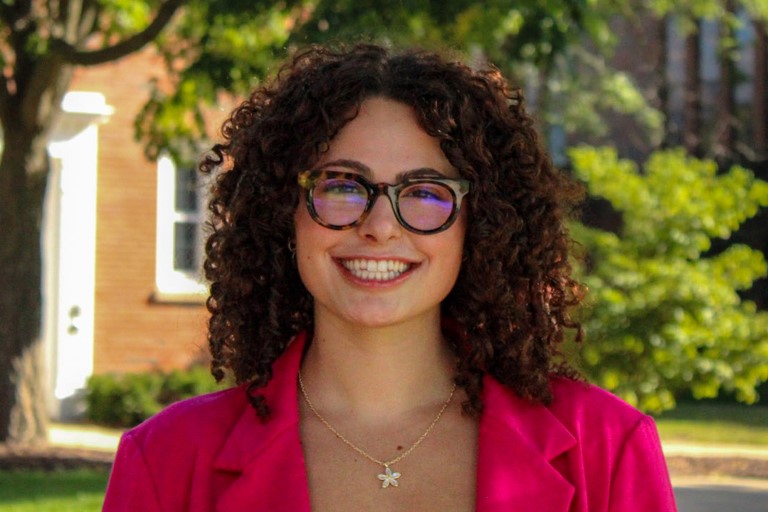Ending Polarization Through Daily Faith
Student Body President Stephen Stapleton ’23 is committed to fostering unity in a divided political climate.
Words: Bethany Peterson Lockett ’20
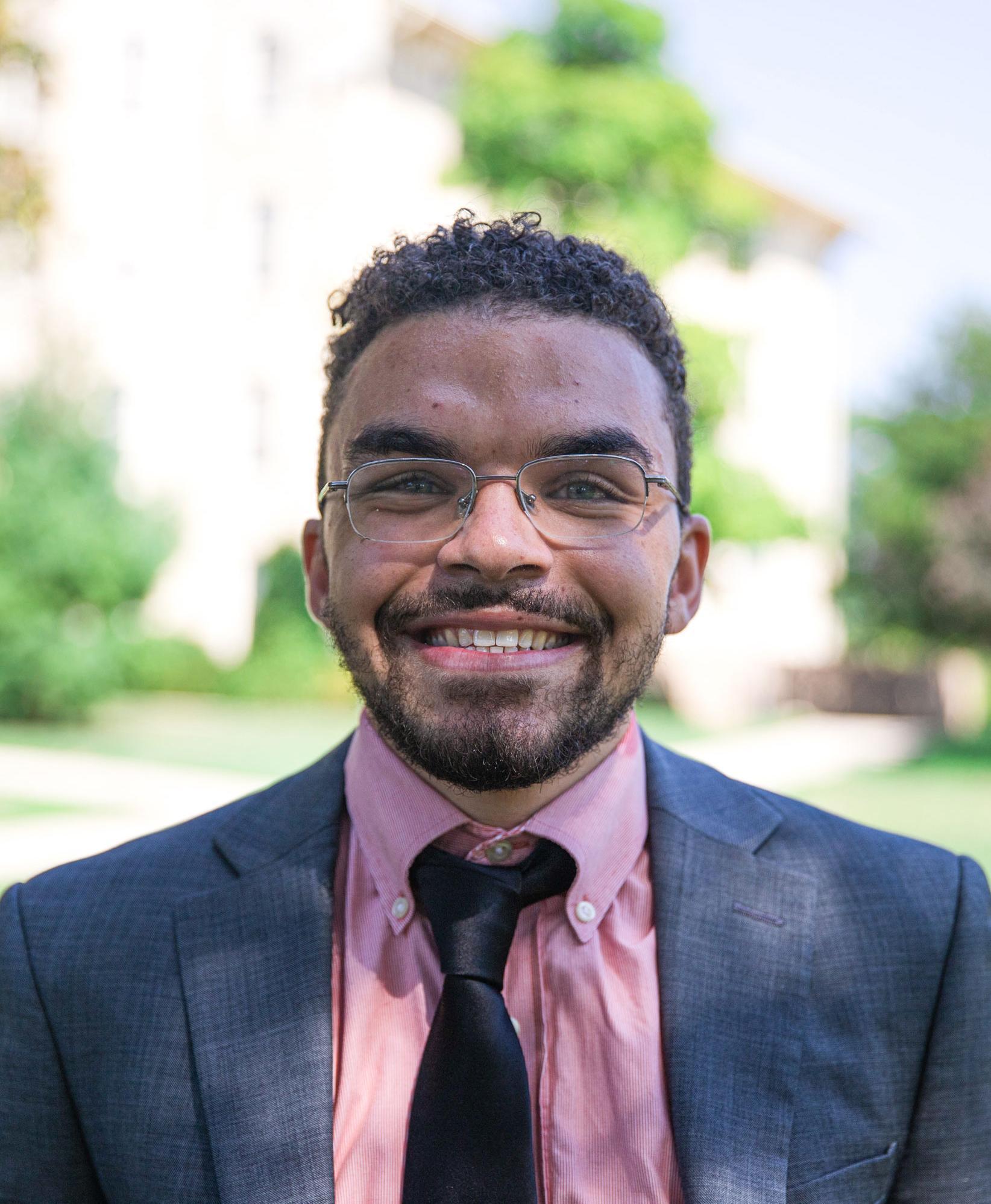
“We wanted to not only make campus a place that looked like it was before but improve it holistically for students who come in and feel a little isolated.”
When alumni look back on their Wheaton experience, they may think about chapel, the dining hall, classes, or football games. But for the Wheaton students who came to campus in the midst of a pandemic, these traditional connection points weren’t the same.
That’s why Stephen Stapleton ’23, alongside Kendra Patty ’23, focused on “reconnection” during their campaign last spring for student body president and vice president.
As Stapleton looked around campus, he noticed an alarming pattern: “So many of us, especially post-pandemic, have been kind of pushed to the outskirts and felt isolated and disregarded.” Is that how some students had felt the entire time, he wondered?
Heading into the upcoming academic year as student body president, Stapleton is now focused on pushing his vision further to belonging.
“We wanted to not only make campus a place that looked like it was before but improve it holistically for students who come in and feel a little isolated,” Stapleton said, referencing incoming freshmen, transfer students, and any others facing challenges in making meaningful connections at Wheaton.
In fact, the vision for unity—as Christians, as a country, and as a student body—is what drives and inspires Stapleton. As a political science major and biblical and theological studies (BITH) minor, Stapleton studies political polarization and the opportunity for Christian unity in those spaces.
“I was really interested in that question of polarization,” Stapleton explained. “Can we be a united nation again? Can we be a united people? Throughout theology classes and studying the Bible, I found that the Bible and God and Christianity have so many answers on how to love others and how to treat others. Just living out your life as a Christian can better inform a less polarized society.”
To explore these issues more deeply, Stapleton has sought advice and mentorship from both his areas of study: Dr. Alex Haskins, Assistant Professor of Politics and International Relations, and Dr. Vincent Bacote, Associate Professor of Theology and Director of the Center for Applied Christian Ethics. “Both of these men have really come alongside me and have really helped my understanding of the world as a whole,” Stapleton said.
When Stapleton first came to Wheaton, he was only interested in studying political science. “I love political science as a field because I love learning about the country, how the country moves, and how different policies and people can shape stories that carry on for generations.”
But as he continued to ask questions about polarization and take classes in the BITH department, especially with Dr. Bacote, Stapleton was convinced that “a lot of what I really love to study and look at is how we can bring people together from polarized ends and how God is a good solution to that.”
One day, Stapleton hopes to go to seminary and become a writer or professor to continue his research on creating unity amid a hyper-polarized political climate. But for now, Stapleton is focused on his upcoming year as student body president, which will be a new challenge for him. In his previous role as an administrative manager, he developed key relational skills that he hopes will serve him well in the year ahead. It also gave him a better understanding on how many different roles with Student Government could work together in unity. He views Student Government as an opportunity for humble service to the student body, from interacting with other student leaders to making decisions alongside college administration. “A big part of our goal is how can we push forward certain positions that can help bring in people that are usually on the outskirts and make them feel as though they belong to Wheaton—to the College and to the campus as a whole—and to make them feel valued, because they are.”
A big part of our goal is how can we push forward certain positions that can help bring in people that are usually on the outskirts and make them feel as though they belong to Wheaton—to the College and to the campus as a whole—and to make them feel valued, because they are.
